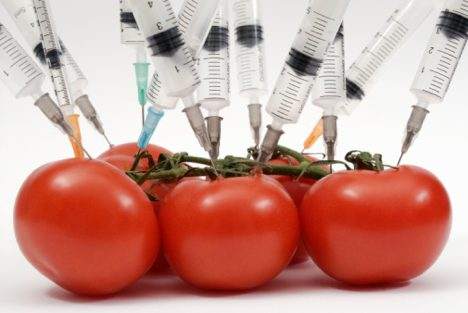A new report has dropped a bomb on the natural food industry. Those pricey “natural” cereals you see at the grocery store may not be as healthy for you as their advertising claims.
According to an in-depth report via Natural News from the Cornucopia Institute titled: Cereal Crimes, many breakfast cereals wearing the “natural” tag are actually made with genetically modified organisms (GMOs) and harmful pesticides.

The Cornucopia Institute is an organic food watchdog and they have gained notoriety over the last few years for exposing the extensive use of hexane solvents in soy protein.
Here’s a brief summary of the claims from the 48 page report:
- Kashi brand cereals (owned by cereal giant Kellogg’s) contains “high levels” of GMOs. High levels means that test results reveal 100% of the soy used in tested boxes of Kashi cereal was GM soy.
- Mother’s brand cereals (owned by PepsiCo) contains “high levels” of GMOs. Tests revealed 28% of the corn to be GM.
- Whole Foods’ 365 brand Corn Flakes contains “high levels” of GMOs, over 50% GM corn.
- Barbara’s Bakery Puffins cereal contains more than 50% genetically engineered corn.
One of the only bright spots in commercial organic cereal is Nature’s Path, their products are all certified organic, they contain no significant GMO, and their products appear to be made with entirely non-GMO ingredients.
Kashi Heart to Heart Blueberry cereal costs more than Nature’s Path Organic Blueberry Cinnamon Optimum Cereal, but the grains used to make Kashi cereal are known by the USDA to commonly contain residues of all the following pesticide chemicals: phosmet, carbaryl, azinphos methyl, malathion, chlorpyrifos methyl and chlorpyrifos.
“Natural” Peace Cereal Wild Berry Crisp is produced from ingredients that typically contain the neurotoxin phosmet and the carcinogen captan in 11% and 55% of samples, respectively. Meanwhile, Mom’s Best Naturals Raisin Bran cereal is made from “natural” (non-GMO) ingredients that are frequently contaminated with malathion and phosmet – both are neurotoxins.
Based on the Cornucopia Institute’s report – if it is indeed accurate – the majority of the natural food industry’s cereal claims are false and their higher prices aren’t justified. News of the report hasn’t set the world on fire yet, but once it spreads there may be a lot of angry and disillusioned health food consumers.
The key issue to take away from this report is that health food enthusiasts are usually more informed about how food is made, as they scrutinize food labels looking for GMOs and harmful byproducts and chemicals. These shoppers look to specifically avoid GMO ingredients and chemicals, so they turn to higher priced foods that claim to be natural and healthier.
But it turns out that even when purposely trying to avoid GMOs and chemicals, health food consumers are being deceived. In a roundabout way, they are being forced to eat the things they want to avoid. This is one of the main reasons why labeling foods with GMOs has become such a big movement.
Consumers want to know what’s in their in their food and they want to avoid the GMO technology which allows food companies to produce cheaper food. This report could give the labeling GMOs movement more ammo to get their initiative put on the ballot.






